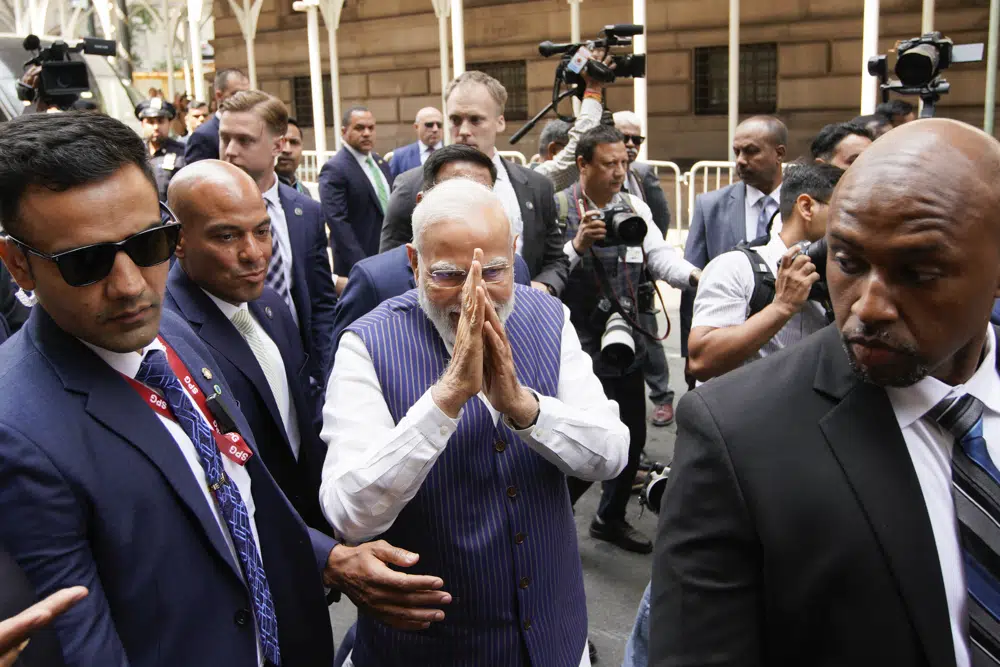There will be plenty of time to discuss global tensions during Indian Prime Minister Narendra Modi’s visit to the U.S. this week. But he’s starting his day Wednesday by highlighting a pursuit of inner tranquility.
After arriving in New York on Tuesday afternoon and holding private meetings, the leader of the world’s most populous nation kicks off his public schedule Wednesday with a group yoga session on the United Nations’ north lawn.
U.N. General Assembly President Csaba Kőrösi, Deputy Secretary-General Amina Mohammed and many other diplomats and U.N. officials are expected to attend the event. It honors the International Day of Yoga, which Modi persuaded the U.N. to designate in 2014 as an annual observance.
The yoga-themed U.N. visit is a savvy and symbolic choice for a premier who has made the ancient discipline both a personal practice and a diplomatic tool. First practiced by Hindu sages, yoga has now become one of India’s most popular cultural exports, and Modi has energetically promoted it as a — rather literal — feel-good way of stretching the country’s influence abroad.
Modi, a Hindu nationalist, casts himself as an ascetic who adheres to his religion’s strictures on vegetarianism and yoga. He has posted social media videos over the years of himself practicing yoga poses (to say nothing of providing live visuals of him meditating in a Himalayan mountain cave after national elections in 2019).
Modi last visited the U.N. during the 2021 General Assembly, where he said that “all kinds of questions have been raised about the U.N.” and its effectiveness on matters ranging from climate change to the coronavirus pandemic to terrorism.
He also made a point of staking out his country’s place in the international community, noting that “every sixth person in the world is Indian.” In the years since his speech, India surpassed China to claim the world’s largest population, at 1.425 billion.
India has long sought a permanent seat on the Security Council, the U.N.’s most powerful organ. India has been elected to a two-year seat several times, most recently for 2021-22.
Modi heads to Washington later Wednesday for a three-day visit that includes an Oval Office meeting with President Joe Biden, an address to a joint meeting of Congress, a White House state dinner and more. Among the plans: a State Department luncheon hosted by Vice President Kamala Harris, whose mother was born in India, and by Secretary of State Antony Blinken.
The visit comes as both countries are interested in strengthening ties.
The U.S. has been looking to India, also the world’s biggest democracy, as a key partner on matters that include checking China’s ambitions in the Indo-Pacific region. India, meanwhile, wants to bolster military and trade connections with the U.S.
However, human rights advocates are urging Biden to press Modi on human rights issues, both international and within India. Modi has faced criticism over legislation that fast-tracks citizenship for some migrants but excludes Muslims; a rise in violence against Muslims and other religious minorities by Hindu nationalists; and the recent conviction of India’s top opposition leader, Rahul Gandhi, for mocking Modi’s surname. (Ghandi recently visited the U.S. himself, speaking to private organizations and university students.)
The Indian government defends its human rights record and insists that the nation’s democratic principles remain rock-solid.

